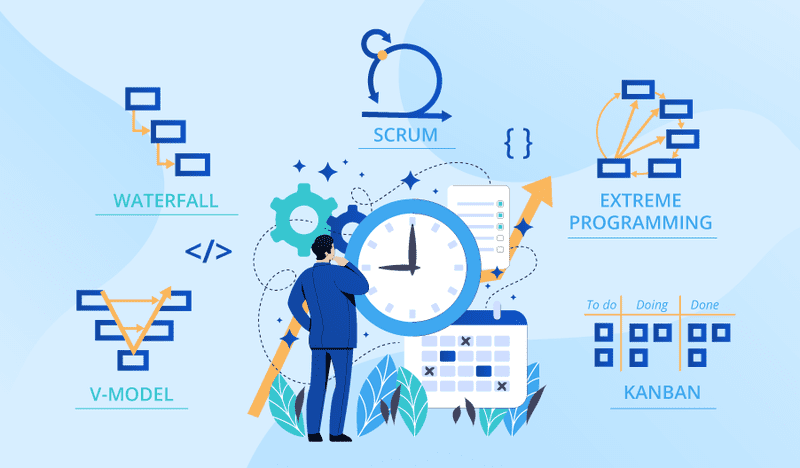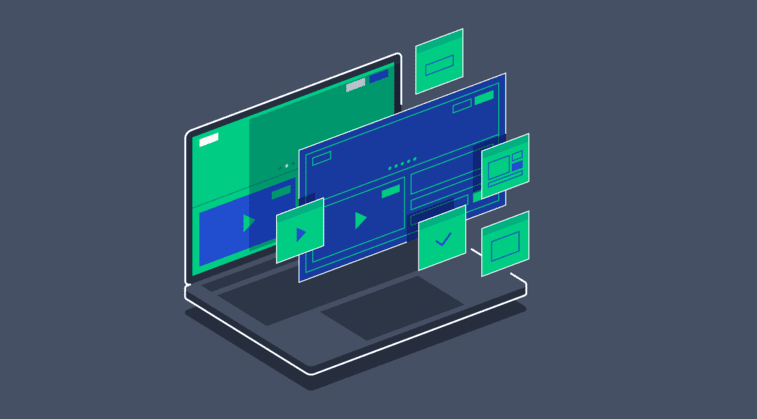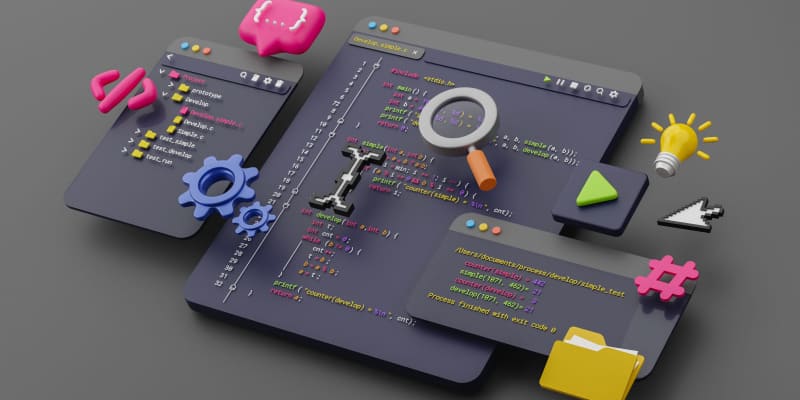
Maintainability: Building Software That Survives Its Creators
Six months after shipping my first major feature, I got called back to add “just a small change.” I opened the codebase with confidence—after all, I wrote this code. Two hours later, I was still trying to understand what past-me was thinking. The logic was tangled, the variable names cryptic, and there wasn’t a comment in sight.
That humbling experience taught me something fundamental: you are always writing code for someone else, even when that someone is future you. Maintainable code respects that reality. It’s code that welcomes change instead of fighting it.
Why Maintainability Isn’t Optional
Software that works today but can’t adapt tomorrow is already technical debt. The real cost of software isn’t in the initial build—it’s in the years of evolution, bug fixes, and feature additions that follow.
Adaptability is survival. Business requirements change. Technologies evolve. User expectations shift. I’ve seen companies rewrite entire systems because the original codebase became too brittle to modify. That’s not a technical failure—it’s a maintainability failure that happened gradually over years.
Every hour of maintenance compounds. If a simple change takes five minutes in a maintainable codebase but five hours in a messy one, you’re not just losing time once. You’re losing it on every future change, every bug fix, every new feature. That difference scales exponentially across a team and a project’s lifetime.
Team velocity depends on it. I’ve worked on codebases where new features took days and codebases where they took weeks—with equivalent functionality. The difference? Maintainability. Clean, well-structured code accelerates everyone. Tangled code slows everyone down.
Maintenance happens whether you plan for it or not. The question isn’t if your code will be maintained, it’s whether that maintenance will be smooth or painful. Choose smooth. Your future self (and your teammates) will thank you.
The Real Enemies of Maintainability
Unmaintainable code doesn’t happen all at once. It accumulates gradually through small decisions that seem harmless in isolation.
Code That Fights Understanding
I’ve opened files with 2,000-line functions, variables named ‘data’, ‘temp’, and ‘x’, and logic so nested that you need a flowchart just to follow the happy path. This is code that actively resists comprehension.
The problems compound:
- Inconsistent style: Every developer writes in their own style, creating cognitive friction
- No clear structure: Business logic mixed with database calls mixed with presentation
- Hidden complexity: Simple-looking functions that do ten different things
- Clever code: One-liners that save bytes but cost hours of debugging
I measure code complexity using cyclomatic complexity and cognitive complexity metrics. If a function scores high, it’s a refactoring candidate. Complexity is the enemy of maintainability.
Documentation That Doesn’t Exist (Or Might As Well Not)
“The code is the documentation” is what people say when they don’t want to write documentation. It’s nonsense.
Code shows what the system does. Documentation explains why it does it that way, how pieces fit together, and what you need to know to modify it safely. These are different things.
Common documentation failures:
- Outdated docs that lie: Worse than no documentation because they mislead
- Scattered information: READMEs, wikis, Slack threads, that one Google doc—knowledge in pieces
- Missing architectural context: Individual functions documented, but no system-level understanding
- No decision records: Why did we choose this database? This architecture? No one remembers
I’ve joined projects where the only way to understand architecture decisions was reading git history and asking people who’d already left the company. Don’t do that to your team.
Dependencies That Became Anchors
Every external library is a time bomb with an unknown fuse. Eventually it will have security vulnerabilities, incompatibilities with newer languages/frameworks, or simply stop being maintained.
I inherited a Node.js project using packages that hadn’t been updated in five years. Upgrading was a nightmare—breaking changes cascaded through the entire dependency tree. We spent three weeks on upgrades that should have been routine maintenance.
Dependency problems:
- Transitive vulnerabilities: Your dependencies’ dependencies have security issues
- Breaking changes: Major version upgrades require code changes you didn’t plan for
- Abandoned packages: Maintainers move on, packages stop receiving updates
- Version conflicts: Different parts of your app need incompatible versions
Treat dependencies like you treat code—with care, skepticism, and regular review.
Technical Debt That Compounds Like Financial Debt
Technical debt isn’t inherently bad. Sometimes shipping with technical debt is the right call. But like financial debt, it accumulates interest. The longer you wait to pay it down, the more expensive it becomes.
I’ve seen teams spend 80% of their time fighting existing code and 20% building new features. That’s a death spiral—velocity crashes, morale tanks, and eventually someone proposes a rewrite (which often fails for the same reasons).
Debt accumulates through:
- Time pressure shortcuts: “We’ll fix it later” becomes “we never fixed it”
- Copy-paste programming: Duplicating code instead of abstracting properly
- Band-aid fixes: Patching symptoms instead of addressing root causes
- Ignored warnings: Deprecation warnings, linter errors, test failures—ignored until critical
I track technical debt explicitly in our backlog. It’s not shameful—it’s honest. And it gets prioritized alongside features based on impact.
The Absence of Safety Nets
Automated tests are your safety net for change. Without them, every modification is terrifying. Will this break something? Who knows! Better test manually… everywhere… every time.
I refuse to work on significant codebases without tests anymore. The anxiety of changing untested code, the hours spent manually clicking through workflows, the bugs that slip through anyway—it’s not sustainable.
Testing gaps create fear:
- Fear of refactoring: Can’t improve structure without risking breaks
- Fear of deployment: Every release might blow up production
- Fear of dependencies: Can’t upgrade because nothing verifies behavior
- Fear of new team members: They might break something they don’t understand
Tests don’t just catch bugs—they enable confident change. That’s their real value.
Building Maintainability In
Maintainability isn’t a feature you add at the end. It’s a characteristic you build in through consistent practices and intentional decisions.
Write Code That Explains Itself
Clean code is readable code. I aim for code that reads like prose—someone unfamiliar with the project should understand what it does, even if they don’t understand why or how yet.
My clean code principles:
Names matter immensely. ‘getUsersByStatus’ is better than ‘getUsers’. ‘isEligibleForRefund’ is better than ‘checkUser’. Be verbose—clarity beats brevity every time.
Functions do one thing. If you can’t name a function without using “and,” it’s doing too much. Extract sub-functions until each has a single, clear purpose.
Keep complexity low. Avoid deep nesting. Limit parameters (three is pushing it, five is too many). If a function is longer than a screen, question whether it needs to be split.
Consistent style across the team. Use automated formatters (Prettier, Black, gofmt) to eliminate style debates. Everyone’s code looks the same, reducing cognitive load.
Write comments that add value. Don’t comment what the code does—the code shows that. Comment why you made non-obvious decisions, tricky business rules, or important gotchas.
‘’'javascript
// Bad: Comments the obvious
// Get user by ID
const user = await db.users.findById(id);
// Good: Explains the why
// Fetch from read replica to avoid load on primary during reports
const user = await db.readReplica.users.findById(id);
‘’’
Real story: I refactored a 500-line function into twelve smaller functions, each with a clear purpose. Total line count increased slightly, but time-to-understand dropped from hours to minutes. That’s a win.
Document with Purpose and Precision
Documentation should answer the questions code can’t: why decisions were made, how systems fit together, and what context future maintainers need.
My documentation stack:
README in every repository. Answers: What does this do? How do I run it locally? How do I deploy it? Where do I go for help?
Architecture Decision Records (ADRs). Capture significant decisions with context, alternatives considered, and reasoning. When someone asks “why did we build it this way?”—point them to the ADR.
API documentation generated from code. Use OpenAPI/Swagger, JSDoc, or language-equivalent tools. If it’s generated, it stays current.
Inline documentation for complex logic. Not every function needs a docstring, but any function with non-obvious behavior does.
Runbooks for operations. How do you handle common incidents? Where are logs? What are the key metrics? Document the operational knowledge.
Keep docs near code. Documentation that lives in a separate wiki or Google Drive becomes outdated. Store it in the repository, version controlled alongside code.
Review documentation in code reviews. If you’re reviewing a PR that adds a feature, the documentation explaining that feature should be in the same PR.
Test Like Your Job Depends On It (Because It Does)
Tests are the only reliable way to verify your code works and keep it working as you change it.
My testing strategy:
Unit tests for business logic. Fast, focused tests that verify functions work correctly in isolation. Aim for high coverage on the code that implements business rules.
Integration tests for component interaction. Test that your services talk to databases, external APIs, and each other correctly. Use test databases, not production.
End-to-end tests for critical paths. Simulate real user workflows for your most important features (signup, checkout, data export). Keep these minimal—they’re slow and brittle.
Test behavior, not implementation. Good tests verify outcomes: “Given this input, I get this output.” They don’t care about internal implementation details, making refactoring safer.
Write tests first (sometimes). TDD works great for complex logic. Write test cases that describe expected behavior, then implement until tests pass. For simpler code, tests after implementation is fine.
Make tests readable. Test names should describe the scenario: ‘test_user_cannot_purchase_without_payment_method’ beats ‘test_purchase_2’. Tests are documentation.
Keep tests fast. Slow test suites don’t get run. Optimize for speed—parallelize, mock external services, use in-memory databases for tests.
Real example: We added comprehensive tests to a payment processing module before a major refactor. The tests caught twelve bugs during refactoring that would have been customer-facing issues. Tests paid for themselves in one week.
Refactor Relentlessly, But Strategically
Refactoring isn’t about making code “prettier”—it’s about reducing complexity and improving structure to make future changes easier.
When I refactor:
When adding features. If new code would duplicate existing logic, abstract first, then add the feature. DRY (Don’t Repeat Yourself) prevents drift.
When fixing bugs. If a bug was hard to find because code was confusing, refactor after fixing to prevent the next bug.
When complexity grows. Monitor cyclomatic complexity. When functions or classes exceed thresholds, refactor to simplify.
Scheduled refactoring time. Dedicate 10-20% of sprint capacity to technical improvements. Don’t wait for permission—make it routine.
My refactoring patterns:
- Extract method: Break large functions into smaller, named pieces
- Extract class: When a class does too much, split responsibilities
- Introduce parameter object: Replace long parameter lists with objects
- Replace magic numbers with named constants: ‘MAX_RETRIES = 3’ beats ‘if (attempts < 3)’
- Simplify conditionals: Replace nested ifs with guard clauses or polymorphism
Critical rule: Never refactor without tests. Tests verify you didn’t break behavior while restructuring. Refactor without tests is just gambling.
Manage Dependencies Like They’re Loaded Guns
Every dependency is someone else’s code you’re responsible for. Choose carefully, update regularly, and have exit strategies.
Dependency hygiene:
Audit before adding. Is this library actively maintained? When was the last release? How many open issues? What’s the security track record? Are there alternatives?
Pin major versions, allow patches. ‘^2.5.0’ allows patch updates (2.5.x) but not breaking changes (3.x). Review minor updates (2.6.0) before adopting.
Automate security scanning. Use Dependabot, Snyk, or similar tools to alert on vulnerable dependencies. Treat security updates as P0.
Update regularly. Don’t let dependencies rot for months. Schedule quarterly dependency reviews. Small, frequent updates beat massive quarterly upgrades.
Minimize dependencies. Each dependency is maintenance burden. Ask: “Can I implement this simply myself?” Sometimes yes, and that’s fewer dependencies to manage.
Vendor critical dependencies. For truly critical libraries, consider vendoring (copying into your repo). If the library disappears, you still have the code.
Pay Down Debt Before It Bankrupts You
Technical debt is inevitable. Managing it intentionally is what separates healthy codebases from dying ones.
Track debt explicitly. I create tickets for known technical debt—TODOs in comments, workarounds, suboptimal architectures. Making it visible makes it manageable.
Prioritize by impact. Not all debt is equal. Debt in code you touch frequently is expensive. Debt in code you never touch costs nothing. Fix high-traffic debt first.
Boy scout rule. Leave code better than you found it. Fixing nearby issues while working on a feature compounds improvements over time.
Allocate time for debt. Reserve sprint capacity for paying down debt. I like 70% features, 20% debt/refactoring, 10% learning/improvement.
Communicate debt to stakeholders. Non-technical stakeholders don’t see technical debt, but they feel it when velocity drops. Explain that investing in code quality maintains velocity.
Prevent new debt. Code reviews catch problematic patterns early. Coding standards prevent common issues. Automated linting enforces rules. Prevention is cheaper than remediation.
The Culture of Maintainability
Tools and practices matter, but culture matters more. Maintainability requires team-wide commitment.
Make quality visible. Display code coverage, complexity metrics, technical debt in team dashboards. Celebrate improvements.
Review with maintainability in mind. Code reviews should ask: “Will this be easy to understand in six months? Are we adding technical debt? Is this tested?”
Share knowledge. Pair program on complex areas. Rotate responsibilities so no one person knows critical systems exclusively. Document as you learn.
Allocate time for maintenance. Teams that only ship features accumulate debt until they can’t ship features anymore. Balance is essential.
Hire for maintainability values. Some developers love solving puzzles but hate cleaning up. Hire people who care about code quality and long-term thinking.
The Long View
I’ve seen projects flourish for years because they were built maintainably, and I’ve seen projects grind to a halt because they weren’t. The difference isn’t talent or technology—it’s discipline and values.
Maintainable code takes slightly longer to write initially. But it saves time on every subsequent change, every bug fix, every feature addition. Over the lifetime of a project, that compounds dramatically.
Think about the developer who’ll maintain your code in two years. Make their life easy. Write clear code, document decisions, test thoroughly, manage dependencies, and address technical debt proactively.
That future developer might be you. But even if it isn’t, they deserve code that respects their time and intelligence.
When you build maintainability in from day one, when you treat it as a core value rather than a nice-to-have, you create software that doesn’t just work today—it adapts, evolves, and thrives for years. That’s the difference between shipping a project and building a lasting system.
And when you return to code you wrote years ago and immediately understand it, when new team members become productive in days instead of weeks, when that “quick change” really is quick—that’s when you’ll know that every hour invested in maintainability was worth it.


